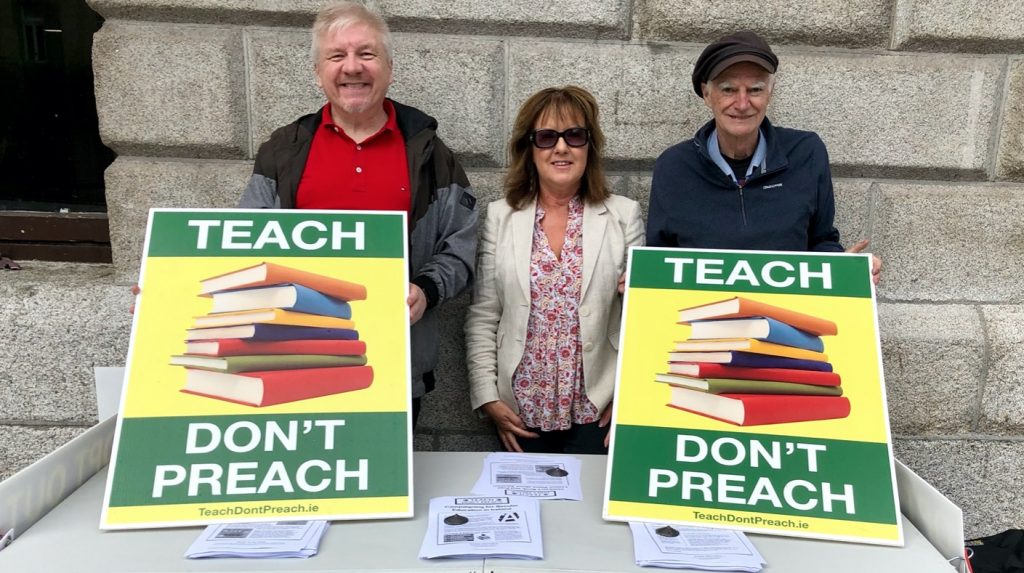
There are two reasons why State schools should be run on a secular basis. And a secular school is not the same thing as an atheist school.
A religious school teaches that a god exists, an atheist school would teach that no gods exist, and a secular school is neutral on the question of religion: it does not teach that gods either do or do not exist.
Instead, a secular school teaches children in an objective, critical, and pluralistic way about the different beliefs that different people have about gods, and leaves it up to parents and churches to teach specific religious beliefs outside of school hours.
That said, here are the two reasons why State schools should be run on a secular basis.
Secular schools are good for society
Firstly, it is good for society for children to be educated together. We in Ireland can see from the recent history of Northern Ireland how segregated schooling contributed to the problems of children understanding and respecting each other across religious divides.
Secular schools bring children together. They teach them the normal subjects that have a basis in scientific fact, like mathematics and languages and history and critical thinking. They teach them about different religious and non-religious beliefs and help them to understand other beliefs and respect other people.
Outside of school hours, the children’s parents and churches can teach them more about their own specific beliefs about the nature of reality and personal morality.
Secular schools respect human rights
Secondly, in practical terms, secular schools are the only way to ensure that everybody has their human rights respected with regard to education.
Under international human rights law, parents have a right to have their children educated in a way that is consistent with their religious or philosophical beliefs.
At a minimum, this means that schools should not indoctrinate children with religious or non-religious beliefs that conflict with those of their parents.
In theory, this could be done by having schools based on every religious view and every atheistic world view, and to have enough of these schools spread around the country so that, in practice, each child can attend one suitable to their circumstances.
In practice, this impossible to do. There is simply not enough money to provide so many schools, and even if there was it would be an administrative nightmare.
So that leaves the other option: have secular schools that are neutral with regard to religious beliefs, as I have described above. This option respects the human rights of all children equally. That is what a fair and just society would do.
The case for secular schools
If we combine both reasons, the conclusion is clear. Secular schools are good for society, because they help children to understand differences and respect other people; and secular schools are the only way in practice to respect the human rights of all of our parents and children.
We cannot do either of these things by segregating children from the age of five into different schools based on their parents’ beliefs. We cannot fix the current Irish education system by trying to divest a small number of Catholic schools to patrons of different beliefs.
Having different schools based on different belief systems is itself the problem. We cannot fix that problem by creating even more segregation. We have to continue to campaign for a State-funded education system that treats everybody equally.